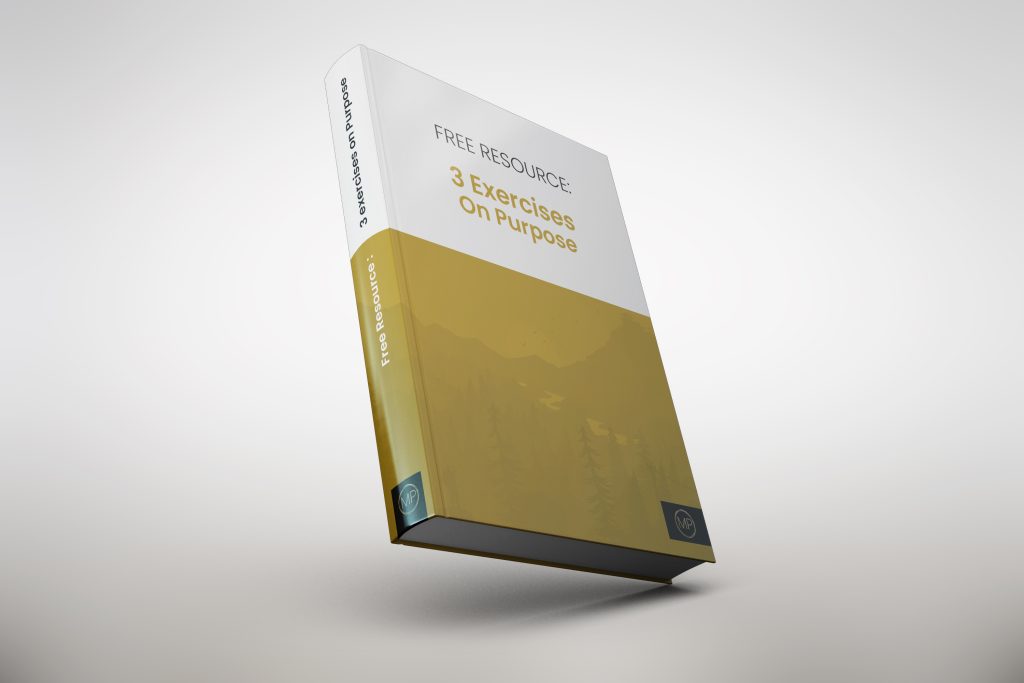In this article we will learn to accept what is, the power of acceptance and peaceful living.
“The only thing that is constant is change.”
Heraclitus
We often worry about things that never really happen. We bring baggage from our past to the fore that causes suffering and we can worry about future outcomes resulting in anxiety. It is important for us to learn to accept what is and sometimes take life as it comes. This does not mean we should live our lives without direction, but if we focus on an end outcome we may miss the beauty a long the way.
Accepting what is, is not the same as accepting bad behavior from another towards you. Self-acceptance is not the same as low self-worth in any form. We can remain strong and tell someone that their behavior is unacceptable but we may accept them at present for who that person is without stressing about changing them. If someone beeps their car horn, we can accept that this person is having a bad day, and we can choose not to allow that negativity to come into our boundary.
The power of acceptance – peaceful living
Once we begin to understand the power of acceptance and choose to use our energy on things that really matter to us, we can live a much happier life and start on our path towards peaceful living. . If we can remove the barriers to happiness such as trying to control everything and worrying about the past and the future; we can begin to invite happiness into our world.
We do not wish to walk around with our heads in the clouds nor do we wish to remain idle and not grow as individuals. We wish to learn how to observe life more intricately and accept what we can and cannot control and the from this position move forward. Is your next action based on kindness and compassion or an action just for you?
Accept life for what it is
What is inner peace? Many variations make up our identity in life. If we can learn to distinguish who we are at a deeper level, our values, meaningful moments in life, our connection to the world, then we can accept that other elements such as career although perhaps important, certainly do not define you as a human being.
It is important to understand who we really are. When people ask about us they often ask what we do? They might say, well, I’ve done this or I do that and that. They might then go onto say what they’ve accomplished. They might say they have gone onto win this award. All of this does not define who we are. These things can have importance but an award, or promotion does not define us. They are events that may have happened in the past, but they are not who we are. However, we are conditioned to believe that that is who we are. This is our ego.
Our education system is designed to build ego. In business we often say we want teamwork. We often however, reward them individually. We are actually saying in a school, you’ve got to help the other person, but actually it’s only the one who comes to the top of the class who gets the best grades, who gets the award. And so everything is built towards creating an illusion of who we think we are, which is ego and it drives ego. And everything about our environment and our society is whatever people say it’s about when you’re on your own and you had better do well. You’re on your own that it’s up to you. So it’s building that up. And and that’s actually an illusion.
When such an illusion is shattered, we can lose our identity in the world. Then the illusion of ego, which is what we’ve invested in, this disappears. Business people can be shattered when losing their job or business. Why? It is because they’ve lost their identity. They have invested so much in their position and the chauffeur and the bits of pieces and this and that. And when that goes, they’re completely lost, utterly lost.
We can build up a strong identity in sport, especially a young sports person can be very powerful in creating an identity for that individual. If this individual gets injured and their career is finished, this can lead to severe depression and worse. The image of being a top sports star, celebrity status, power and fame can disappear if this sport was no longer viable through a career ending injury. This can be due to their identity and image being shattered. In reality they were so much more than this one image. This individual is so much more than that sport or that title. Feeling trapped in life can cause us to have an on going battle with our ego.
More on this can be seen in our video interview with Vernon Sankey & Katey Lockwood.
We have to understand who we really are and we are not defined by such things. The universe is all around us and we are part of it. Having a degree or job title is part of you but it does not define you and in comparison to everything that happens in life it can be quite trivial. What really matters is who are you? What are you here for? Why are you here? What’s the end game? When people are asked these questions, it takes them a long time to actually come round to really actually finding an answer to it, because ego is constantly intervening. Once we begin to practice learning about our self-image and identity we can start to understand more about who we really are; we can still enjoy with pride a promotion or skill set; but we don’t need to let such a thing define us. We can then accept that we are good enough and learn to accept ourselves.
Imagine your life was water flowing between rocks. Each rock may have been part of your past or present, but these rocks do not become the water itself. The water can still flow with purity and beauty regardless of passing by a rock or a rock being removed. Removing a rock or losing a job, going past a rock or having a positive life moment can be accepted for what it is. There will be many more opportunities and many more positive life moments. The passing of time does not define you. What will define you more is the purity of the water; your values, your heart, your compassion and your harmony with others and nature.
Interconnected
We all have power over our thoughts and choices in life. If we think of the COVD-19 pandemic and how interconnected we are as a species and with nature itself. Think of the concept of the butterfly effect. How we think and how we see the world can cause us to make choices and such choices have an effect on those around us. The Broaden and Build Theory discusses how positive and negative emotions within us can have a domino like effect on others and hence cause changes in the same way a pebble hitting a lake causes further ripples. We cannot change other people directly but we can change our reactions to other people and change the choices we make.
Meditation resources and mindfulness practices can help us to sit with our thoughts and emotions and to accept what is. This is not to say that we cannot in time help an individual become more compassionate or to help an individual become happier. We do have a strong influence over others. There is a balance to be struck. We can choose to accept what is at times and observe our thoughts and emotions. We can choose to accept that we have what we have so that we do not cause unnecessary suffering through wanting and desiring more. However we can absolutely always grow as an individual, become the best possible version of ourselves and we can be kind and compassionate to others and our planet in that process. Learn to accept what you cannot control right here and now and learn to continuously grow as an individual each day.
Matthieu Ricard writes (2020);
“But these unfavorable circumstances can also allow us to revisit our priorities in life, to become more clearly aware of what really counts in our existence, and to put friendship, benevolence, social ties, the quality of relationships with others, mutual aid and cooperation, and all that contributes to a life worth living, back at the center of our aspirations.”

As Katey Lockwood eloquently describes (2021);
“And I think it’s just to realize that when we attach ourselves to all those things that we’re talking about, those labels, we can’t we identify with those labels. When those labels get taken away, it’s always that, well, who am I now? Yeah. Without that label. Yeah. And actually, just to be to trust in the process of, you know, we’re all on this journey and the human journey is to be experienced without acknowledging that the external is, is there to push us to, to be a certain way, you know, the same in society and conditioning society is sort of putting us in this box. That’s how we have to fit in. And that’s how you have to be. Actually, when we’re just when we’re content with who we are, then we don’t need to be anything but ourselves. And to feel happy within ourselves is the space that we need to be in.”
Don’t focus on what could have been
Wanting and desiring something is a cause of suffering. If we accept what is and practice gratitude, in addition to planning goals with a mindful focus, we can pursue our dreams, enjoy the journey mindfully, but also accept what is and be grateful with what we have and who we are today. If we want something and we get it, we may be happy for a short while but then we will likely want something else. So wanting. Is not necessarily right, and suffering is wanting in Buddhist term, but the second noble truth is about desiring. Wanting is suffering.
Much anxiety can come from worrying about the past or worrying about the future. Reminiscing of past moments such as a warm family time, holidays with friends and more can be pleasant. Finding meaning from past events can help us grow as individuals, and if we face a challenge today, thinking of a past positive memory can help us regain our strength. However, ruminating on the past and negatives will only lead to suffering. When we learn to focus on what we can control we open the door to peaceful living.

Acceptance exercises and techniques
- Practice meditation to help regulate and understand your emotions and thoughts,
- Create a morning and bed time routine. I highly recommend a compassion based meditation when first waking up. If we can start our day with compassion then we will leave our home in a positive mindset and we will start the day with kindness towards others.
- Write down something you are grateful for each evening in a journal. Practicing gratitude no matter how small has been shown to increase individuals well-being.
- Exercise and drink plenty of water. Keep your body healthy and this will help you stay in a positive mind set and also help you function better to accept what is and to let things go more often.
More on this topic can be found in our self-help courses.
A conclusion of thoughts
We can create strong goals, pursue career promotions, be proud of our medals and accomplishments. We can continuously grow and evolve. Accepting what is allows us to not waste our energy on stressing about the past, worrying about the future or trying to change someone stubborn (who may change over time organically). We learn to let go of the trivial things more and not to get offended by things as easily. If we lose our job, other than the financial security we can choose not to let this define our identity. We are so much more than a position or a role. Being a manager, a lawyer, a footballer can be part of who you are; but in the grand picture of the universe, life and death, meaningful moments with our loved ones, human equality and harmony with our planet, such roles need not define us. Our ego need not be all bad by any means; albeit once we have awareness of our thoughts, our ego, and our true selves, we can accept what is more often and live our life in alignment with what feels right for us, a compassionate life towards others, and not allow ourselves to be hurt when our ego is attacked. We are so much more.
Learn more about peaceful living with Meaningful Paths.
Thanks for listening.
David Chorlton
Meaningful Paths Founder
References
Broaden-and-Build Theory of Positive Emotions (positivepsychology.com)
Ego is the Enemy by Ryan Holiday: Book Summary, Key Lessons and Best Quotes (dailystoic.com)
Let Us Experience Every Moment To The Fullest – Matthieu Ricard
What is Self-Acceptance? 25 Exercises + Definition and Quotes (positivepsychology.com)
Images
colton-duke-QRU0i5AqEJA-unsplash
daniele-levis-pelusi-Ar5FGfHXwMU-unsplash
kerry-rawlinson-okJ1Iss6Zoo-unsplash


